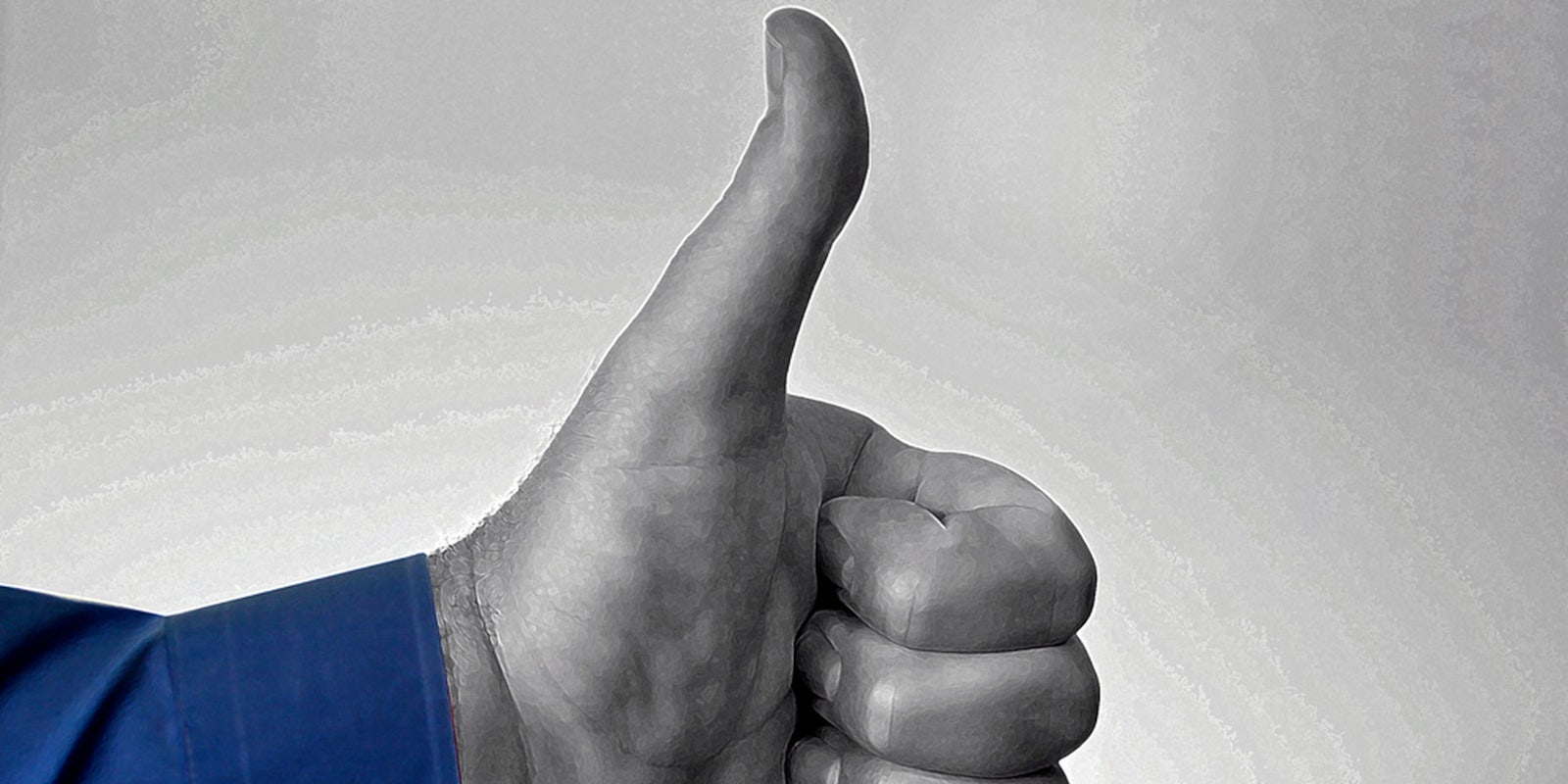According to researchers, “liking” something on Facebook or another social network encourages others to follow your example—and may even trigger an avalanche of approval.
In a report for the journal Science titled “Social Influence Bias: A Randomized Experiment,” Lev Muchnik, Sinan Aral and Sean J. Taylor set out to chart the fluid dynamics of digital popularity. What they discovered was something we’ve all intuitively felt: hype breeds hype.
In the abstract of their findings, they wrote:
We … designed and analyzed a large-scale randomized experiment on a social news aggregation Web site to investigate whether knowledge of such aggregates distorts decision-making. Prior ratings created significant bias in individual rating behavior, and positive and negative social influences created asymmetric herding effects. Whereas negative social influence inspired users to correct manipulated ratings, positive social influence increased the likelihood of positive ratings by 32% and created accumulating positive herding that increased final ratings by 25% on average.
In other words, “likes” follow “likes,” but misery doesn’t love company—disapproval did not prompt other users to express a similar opinion. It’s only the feel-good thumbs-up that gets people on the social bandwagon. But even positive herding “was topic-dependent and affected by whether individuals were viewing the opinions of friends or enemies.”
The aggregation website used in the experiment remains unnamed, at their request, so who knows? You may have been one of the guinea pigs! Attaching fake upvotes and downvotes to various articles—while leaving some alone for a control group—the researchers were able to influence the behavior of readers when it came to rating the articles. Positivity tended to snowball, and, perhaps more interestingly, arose in direct opposition to negative reactions. According to the New York Times:
The Web site allows users to say whether they like or dislike other users, and the researchers found that a commenter’s friends were likely to correct the negative score while enemies did not find it worth their time to knock down a fake up vote.
That certainly runs counter to the conventional wisdom that anything popular will inevitably attract harsh critics, and suggests that we also like to “like” for reasons other than social contagion: in effect, we may just take a certain pride in promoting and defending quality content. Either that or we find it fun.
Which reminds me—you’ll probably want to tweet this article, right? We only need a few of you, then everyone else should follow suit. Come on, I know you “like”-liked it.
Photo by Owen W Brown/Flickr


